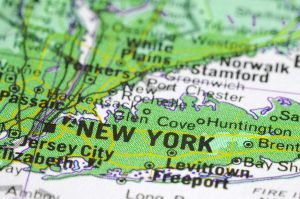
What are the Bankruptcy Exemptions in New York?
Exemptions allow a person who is filing for bankruptcy to exclude certain assets from the property liquidated by the bankruptcy estate or repossessed by creditors. Like several other states, New York has its own set of bankruptcy exemptions in addition to those available under federal law. People who file for bankruptcy in New York have the option of using either the federal2 or the state exemptions. In addition, married couples who jointly file for bankruptcy in New York are able to double their exemptions, meaning that they can double the exemptions applied to any jointly owned property. Some of the types of property that can be claimed as exempt include:
- Homestead – The homestead exemption allows people to exempt the equity in their home, up to a certain amount. These amounts vary by significantly by county, so anyone who may be able to claim a homestead exemption should talk to an attorney familiar with New York bankruptcy law.
- Personal Property – The personal property exemption allows debtors to exempt various types of personal property, including bank accounts, vehicles, trust funds, and personal injury recoveries, up to a certain value.
- Public benefits – People who file in New York can exempt certain public benefits as well, including social security, unemployment compensation, workers’ compensation, and veteran’s benefits.
There are myriad other exemptions available as well, so anyone considering filing for bankruptcy in New York should discuss their options with an attorney in order to ensure he or she takes full advantage of all available exemptions.
Contact a Long Island bankruptcy lawyer today to schedule a free consultation
If you have fallen behind on your financial obligations and are having difficulties making payments, bankruptcy may be able to help. To schedule a free consultation with Long Island bankruptcy lawyer Ronald D. Weiss, call our office today at (631) 402-5967.
https://www.ny-bankruptcy.com/services/bankruptcy-solutions/
References:
1 http://www.uscourts.gov/FederalCourts/Bankruptcy/BankruptcyBasics/Chapter7.aspx
2 http://www.law.cornell.edu/uscode/text/11/522




